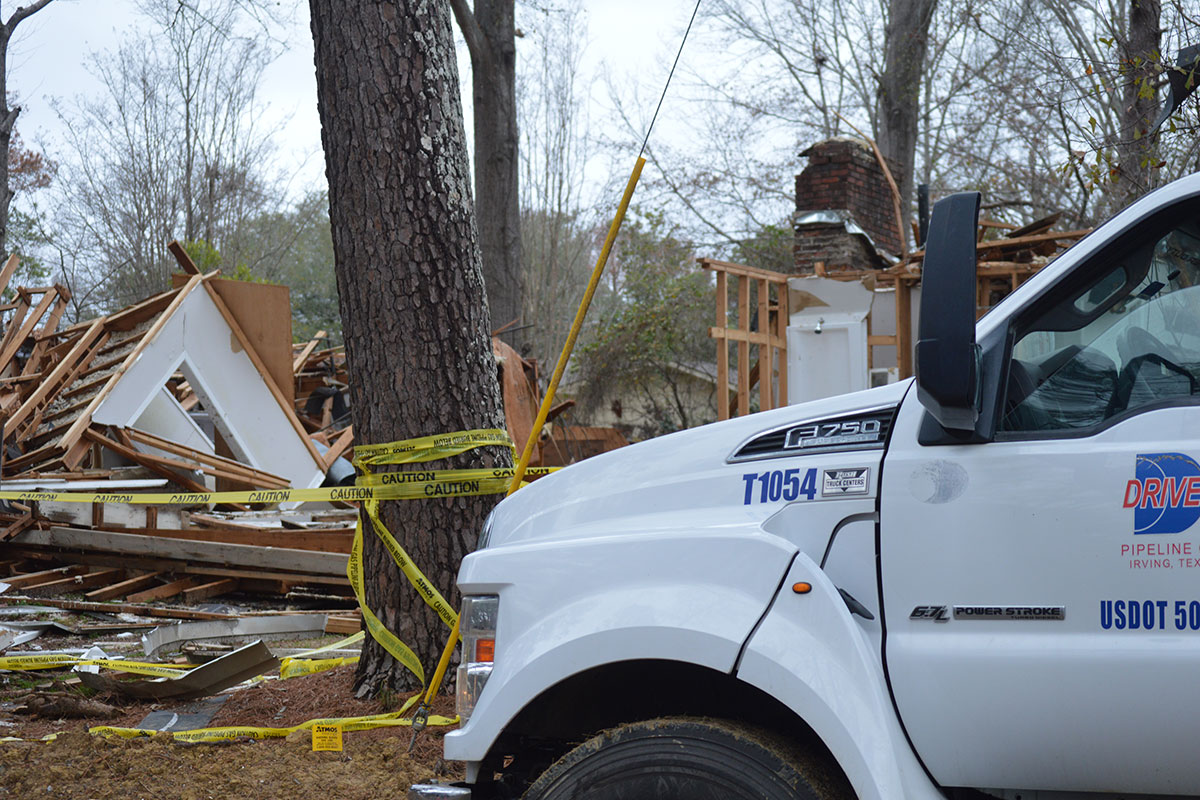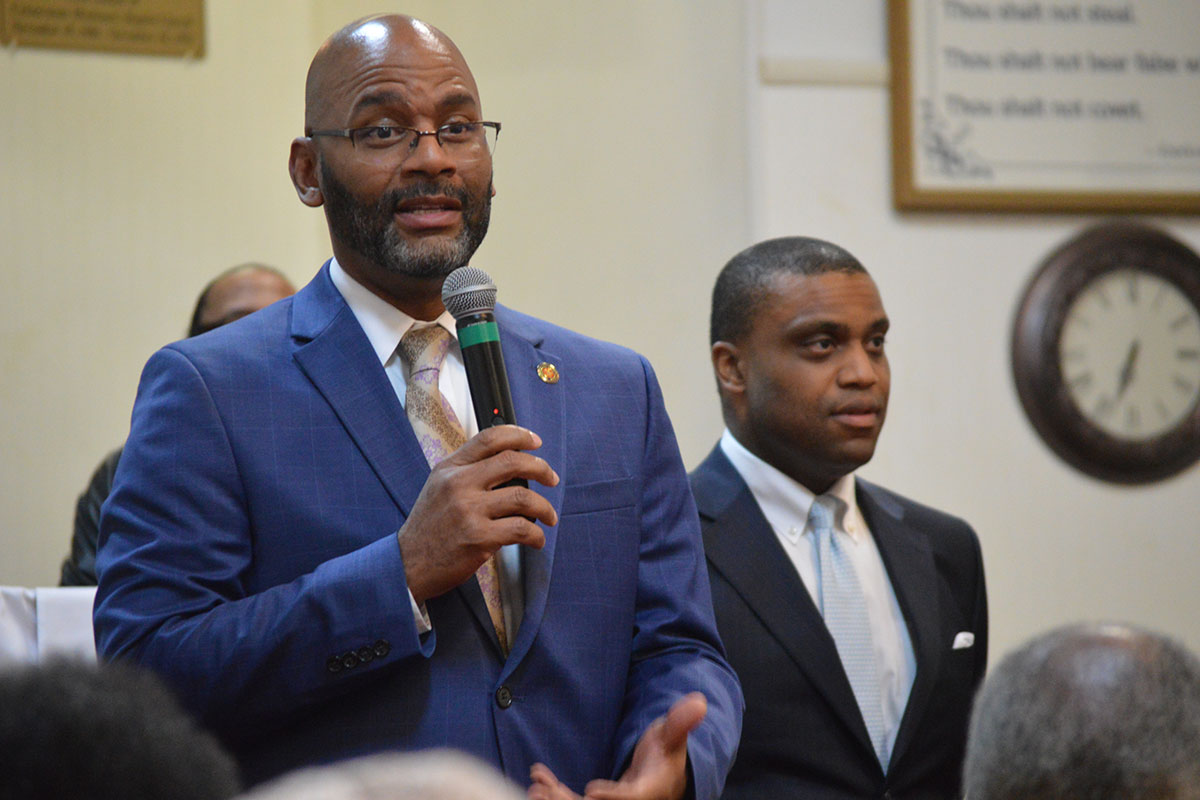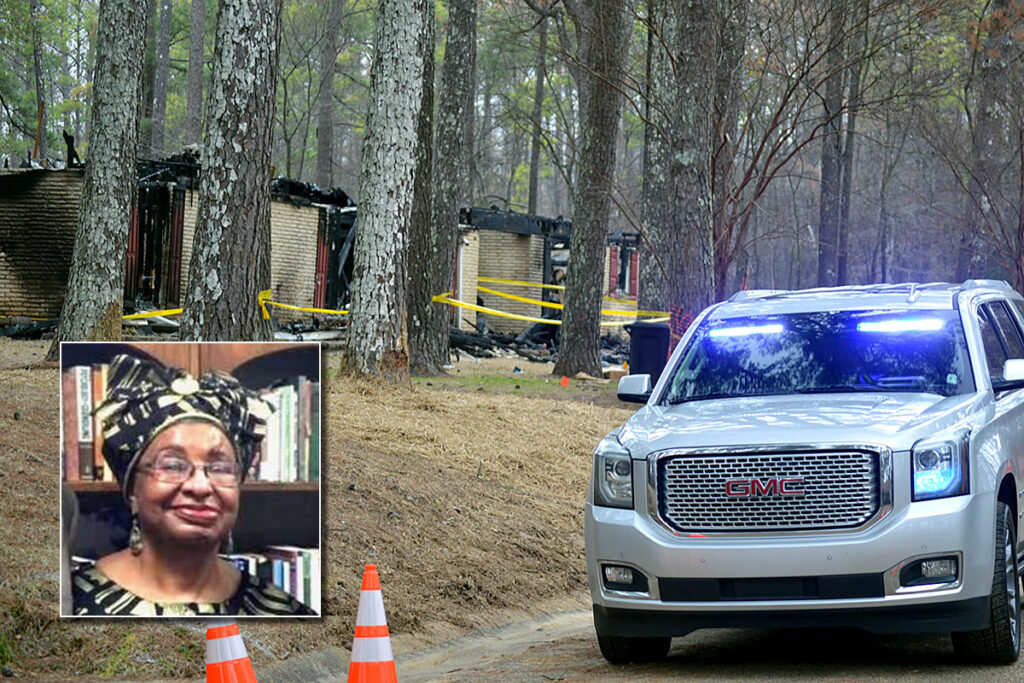JACKSON, Miss.—Clara Barbour, 82, died in her home on Bristol Boulevard in Jackson, Miss., when it exploded on the morning of Jan. 24, 2024. Three days later, on Jan. 27, WLBT reported that a second house, this one vacant, exploded about a mile away on Shalimar Drive.
A federal agency is investigating the explosions to determine whether gas leaks or infrastructure failures may have played a role. The National Transportation Safety Board plans to release a preliminary report within the coming weeks.
NTSB spokesperson Keith Holloway said in a statement to the Mississippi Free Press on Thursday that the agency’s initial report will be a short document that “will only include the factual information that is known at that time,” such as physical evidence the agency’s investigators initially collected at the scene of both incidents and information obtained from the people NTSB investigators have spoken with regarding what they witnessed.
Holloway said the NTSB has observed factors that suggest a natural gas leak may have been the cause of the explosion that killed Barbour on Jan. 24. Because the agency’s investigators were already looking into that incident, the NTSB also decided to investigate the Jan. 27 incident as well, Holloway told the Mississippi Free Press.
While the NTSB is more commonly known for its investigations following civilian aviation accidents and rail accidents, natural-gas pipelines also fall under the agency’s jurisdiction. As a federal agency independent of the Department of Transportation, NTSB only investigates accidents to determine safety issues and to make recommendations as to avert a repeat of the same incident in the future.
‘It Could Be Linked’
The National Transportation Safety Board could take between 12 and 24 months to release their second and final report detailing what they believe actually caused the explosions and whether or not any safety measures were missed before Clara Barbour’s death, Keith Holloway said. “The investigation is still very much in its infancy and ongoing.”
“Part of a typical NTSB investigation will include a chronology of events leading up to the gas leak and subsequent explosion,” he said. “Also, the investigation will include the reporting process and what took place prior, as well as a review of company practices and procedures.”
Holloway said investigators have not determined whether or not a connection exists between the Jan. 24 and Jan. 27 explosions.
“It could be linked. We don’t know. It could be systemic. We don’t know,” he said. “So we have to look at everything in order to determine what caused it and how to prevent it from happening again.”

The NTSB will continue to collect information from local and state officials about the events leading up to the explosions and will then independently analyze that data to determine how the agency can prevent a similar incident from happening again, Holloway said.
“If it wasn’t a natural-gas leak or anything having to do with a pipeline, if it was some other type of explosion, more than likely NTSB wouldn’t be involved,” Holloway said on Thursday. “But it is considered transport, whether that’s gas or hazardous materials and things like that.”
‘The Silver Lining In This Whole Dark Cloud’
Central District Mississippi Public Service Commissioner De’Keither Stamps joined several Jackson City Council members in a series of community meetings over the past few weeks where residents questioned Atmos Energy representatives about the safety of the gas pipelines running under the streets in their neighborhoods.
“We’re going to look at everybody that digs in the ground,” Stamps said at a community meeting at Cornerstone Baptist Church in Jackson on Feb. 7. “We’re not letting Atmos off the hook at all. There’s other folks running cable lines and broadband and water and sewer. We’re going to look at everybody,” he said.
Stamps said that after the initial explosion, Atmos Energy, which is headquartered in Dallas, Texas, requested help from companies outside of Mississippi to survey Jackson’s neighborhoods. Miller Pipeline, Kelly Natural Gas Pipeline and Driver Pipeline stationed vehicles throughout the neighborhoods in south Jackson after Barbour’s death.

Residents questioned Atmos Energy Vice President of Public Affairs Bobby Morgan III and Vice President of Operations Roy Morris on Feb. 7 about Atmos’ typical procedure after a suspected gas leak. “Once Atmos Energy technicians got to the scene (at Bristol Boulevard on Jan. 24), we shut off gas to the area out of an abundance of caution. That’s part of our policies and procedures,” Morgan said.
Atmos offered more than 100 customers in the area the opportunity to stay in hotels while the company surveyed for leaks, he said.
“Three days later on the 27, Atmos Energy technicians also responded to a fire on Shalimar (Drive). In regards to those two incidents, we don’t know the cause of those two incidents,” Morgan added. He said Atmos Energy technicians surveyed neighborhoods back in November and December of last year and had completed several projects and documented other potential projects.
After the explosions, Atmos Energy accelerated some of the projects that the company had previously deemed “non-serious” and had scheduled to be completed at a later date, Morgan said.
“We monitored our system and made the decision to accelerate leak repairs and to accelerate infrastructure replacement programs. This is work that had already been planned,” Morgan said. “Back in November and December, we surveyed the area. If we found something serious we fixed it immediately. Those non-serious issues were graded and scheduled for repair.”
In an interview with the Mississippi Free Press on Feb. 12, Stamps said the work Atmos is doing now is vital for fixing Mississippi’s crumbling infrastructure. “If you’re not digging up stuff and putting new infrastructure in place, you’re not fixing Mississippi,” he said.
“The silver lining in this whole dark cloud is that this area will have the best natural-gas service on the planet. So it’s going to be prepared for the next hundred years,” Stamps said.
Stamps urged Jackson residents to immediately report smelling gas. “If you smell something, say something.,” he said on Feb. 12. Atmos Energy’s site states that anyone who believes there is a gas leak in their home should immediately leave, call 911 and then call Atmos.
NTSB spokesperson Keith Holloway said the findings from the agency’s long-term investigation into the cause of the Jan. 24 and Jan. 27 explosions may help improve safety regulations beyond Mississippi.
“While NTSB does not investigate every accident, the safety recommendations that could stem from any investigation can have not only national implications to improve safety for the pipeline industry overall but also globally especially in aviation,” Holloway said.










